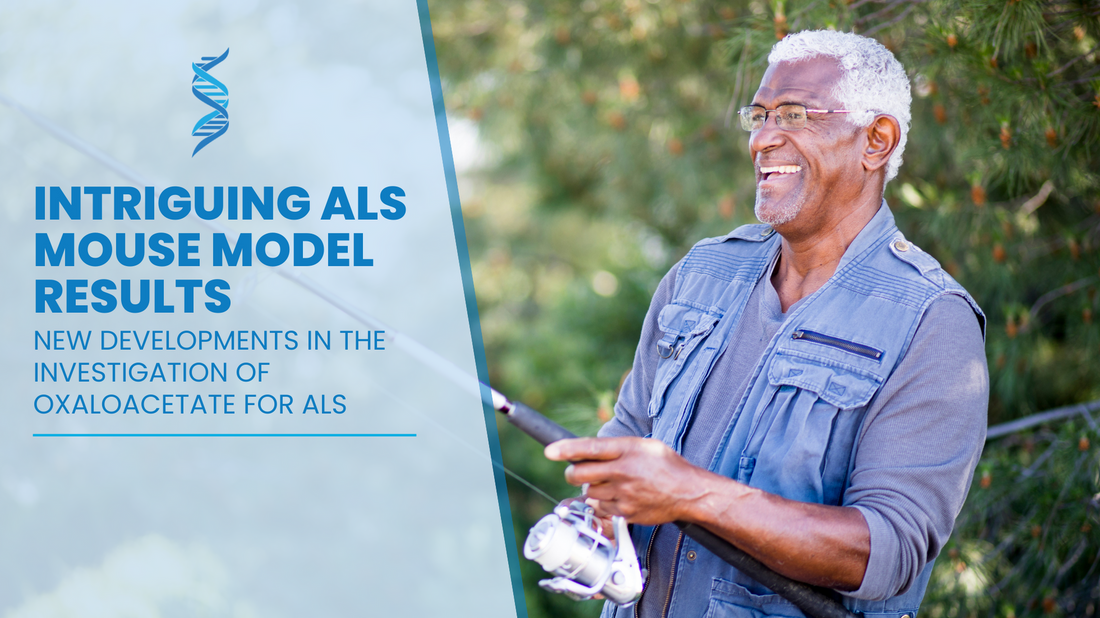
Oxaloacetate Significantly Improves ALS Model Mice
Share
Researchers from the University of South Florida published in “Nutrients” success in reducing many of the symptoms of ALS in animal models.
“GSP [Oxaloacetate fed ALS model mice] had a significantly slower decline in neurological score, strength, endurance, and coordination with a trend toward increased lifespan.”
The researchers used a rotarod test for endurance and coordination. Compared to baseline, mice fed Oxaloacetate and given extra GOT showed significant improvement (p= 0.006), and significantly improved over the Control group (p<0.05). Oxaloacetate mice attenuated neurological decline as compared to the Control group (p< 0.05) and showed a trend towards a 35% increase in survival. The longest surviving animals in the test were in the Oxaloacetate group.
https://www.mdpi.com/2072-6643/15/8/1821
The results further supports Terra Biological’s US FDA “Orphan Drug” designation for treating ALS, and provides further support to the Clinical Trial in ALS currently under way at the University of Kansas Medical Center, NCT04204889. Terra Biological provides the oxaloacetate for the clinical trial. The work also supports previous work by the University of Kansas using oxaloacetate on ALS model mice.
https://pubmed.ncbi.nlm.nih.gov/34040085/
The clinical trial of Oxaloacetate in ALS is scheduled to be completed this year. Terra Biological has worked with several Universities and Medical Schools to further oxaloacetate research, including the University of Kansas, University of California San Diego, University of California Los Angeles, Icahn School of Medicine at Mount Sinai, Louisiana State University, University of South Florida, Stanford University, University of Houston Medical School, University of Melbourne, the Bateman Horne Center, and the Mayo Clinic.
